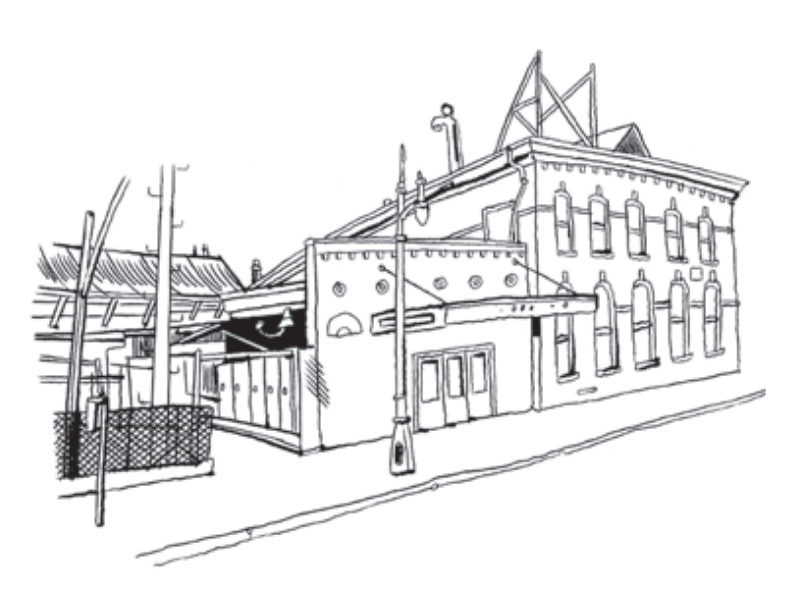This issue features a microinterview with Jeffrey Eugenides, conducted by Zack Ruskin. The fiction of Jeffrey Eugenides spans continents and centuries, but readers of his work may notice a recurring locale. Whether prominently featured or casually mentioned, Eugenides’ upbringing in Grosse Pointe, Detroit, hovers over his books (The Virgin Suicides, Middlesex) like a thick exhaust of nostalgia and melancholy. In Marin County, California, between events on his last book tour, Eugenides spoke with Ruskin about his take on Detroit’s past significance and what possible futures await the Motor City. The accompanying illustrations are by Jason Polan, who is also from Detroit.
MICROINTERVIEW WITH JEFFREY EUGENIDES, PART I
THE BELIEVER: Where do you see Detroit fitting into the echelon of American literary settings?
Jeffrey Eugenides: In my mind, it’s one of the most important cities to write about, because it has so many things that are central to the American experience. You can think of the rise of industry, with Henry Ford and the automobile, and you can think about Motown and what an American form that is, and how influential it was around the world, and then on the bad side you can think about the terrible racism that was in the city, and the tensions between African Americans and whites that finally led to the race riots and this slow devolution of the city. In writing just about Detroit, you can speak to many of the things that seem to both grace and bedevil American society.
MICROINTERVIEW WITH JEFFREY EUGENIDES, PART II
THE BELIEVER: How would you compare Detroit now to when you lived there?
JEFFREY EUGENIDES: When I was a kid, the city was the fourth or fifth largest city in the country, and it had more than a million people, and it was prosperous. The downtown was bustling, and my parents would take me there—it was like a small version of Chicago. Then the riots happened when I was seven, and the city began to change a great deal and really, really go into a downward spiral. Now I think half of the land is actually vacant.
BLVR: Given Detroit’s size, that’s got to be a lot of empty ground.
JE: It is. Detroit is one of the largest cities in the United States in terms of square miles, so there’s not a lot of people, and a lot of land to cover. Recently, some good things have been happening in Detroit. I just was at a party for Matthew Barney, doing a series of films being shot in different American cities, and part of it was done in Detroit, and at the party I met all the Detroiters who helped work on his film....
You have reached your article limit
Sign up for a digital subscription and continue reading all new issues, plus our entire archives, for just $1.50/month.
Already a subscriber? Sign in





